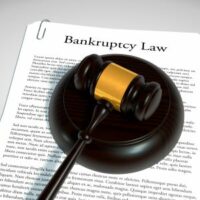What Is Chapter 20 Bankruptcy?

When we talk about bankruptcy, we usually talk about Chapter 7, Chapter 13 or Chapter 11. But what about Chapter 20? Is there even a Chapter 20 in the bankruptcy code, and if so, what does it do?
Chapter 20 Exists – Kind Of
There actually is no Chapter 20 in the bankruptcy laws, but that doesn’t mean it doesn’t exist. Chapter 20 is a made-up term for a bankruptcy that combines, by filing one after the other, a Chapter 7 and a Chapter 13 bankruptcy.
Why would someone want not one, but two bankruptcies? Because doing both allows you to get the unique benefits of both. This is assuming that you qualify for both—for example, that you pass the means test required for a Chapter 7, and that you have sufficient income necessary for a Chapter 13.
The Chapter 7
Of course, the first step is the Chapter 7, which eliminates most of your debts. But one problem comes if your home is in foreclosure, or if you are just behind on the mortgage payments. Although a Chapter 7 can help you if you are in foreclosure, there is no way to ensure that happens in a Chapter 7—that is, Chapter 7 law doesn’t specifically say that you have a right to bring your mortgage current.
Then the Chapter 13
But Chapter 13 does, hence the benefit of following your Chapter 7 with a Chapter 13. A Chapter 13 will allow you to pay the back owed amount on your mortgage that is in default (that is, your missed payments), through the course of the five-year plan. So long as you can pay that amount, plus your normal monthly mortgage every month, at the end of your plan, you are caught up, and current with your mortgage, and thus out of foreclosure.
There is another benefit to Chapter 13—the potential ability to lower your total amount owed, if you owe more than what your home is worth (negative equity). Courts are split on whether this is allowable and when—check with a Chapter 13 bankruptcy attorney to see if this is possible.
More Money for Payments
Even better, if you discharge your debts in Chapter 7, your payment plan in the Chapter 13 may be lower, as you have fewer creditors to pay. This may make the Chapter 13 payments (which would include, primarily, your back owed mortgage payments) much more affordable, and plan more likely to be approved by the court.
Additionally, if you have non-dischargeable debts, they can be included in the Chapter 13 plan as well. If you are in default on these obligations, Chapter 13 will give you a way to catch up on them.
Of course, you need to make sure that what you do in one bankruptcy case, doesn’t affect the other. So ask a bankruptcy attorney if a Chapter 20 may be a more complete answer to your financial problems than one bankruptcy would be.
Bankruptcy has a lot of answers to common problems. Call the West Palm Beach bankruptcy lawyers at Kelley Kaplan Delaney & Eller, PLLC, at 561-264-6850 for help today.



